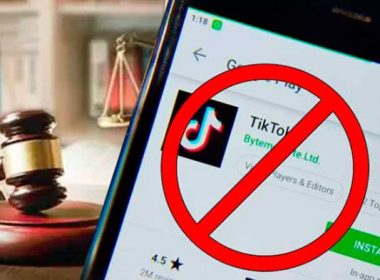ASEAN Countries Get Terrible Scores in Data Privacy Study
A number of ASEAN countries—including China, Thailand, India, and Malaysia—are in the bottom rung for online data protection citizens receive, according to a recent study published by Comparitech, a U.K.-based tech research agency. The study surveyed nearly 47 countries on the level of privacy protection citizens can rely on when browsing the internet. Countries were […]
A number of ASEAN countries—including China, Thailand, India, and Malaysia—are in the bottom rung for online data protection citizens receive, according to a recent study published by Comparitech, a U.K.-based tech research agency.
The study surveyed nearly 47 countries on the level of privacy protection citizens can rely on when browsing the internet. Countries were given a score out of five, with lower scores indicating inadequate privacy protection.
China was ranked the worst country for privacy protection, getting a mere 1.8—the lowest score out of all the countries the researchers analyzed. India came close behind, followed by other ASEAN countries like Thailand and Malaysia. Tech-savvy Singapore was ranked in 42nd place, behind the Philippines, which came in the 39th place.
None of the ASEAN countries managed to snag a top score indicating good data and privacy protection.
The country considered the best for privacy protection, according to the study, in which Ireland ranked at the top. European countries crowded the top spots with France coming in second place, following by Portugal, Denmark, and Malta.
Comparitech considered factors such as CCTV prevalence, biometrics, and domestic data laws when scoring countries.
China ranked the worst mainly because of the country’s often criticized the use of artificial intelligence and biometrics to monitor citizens. Comparitech pointed out that China uses facial recognition technology to catch and punish even minor misdemeanors like jaywalking. The study further emphasized that in the mainland, the government can demand data from any company or citizen, regardless of due process.
Thailand also follows similar practices. The researchers said that the Thai Ministry for Digital Economy and Society can demand data from internet service providers without a warrant. Internet cafes in Thailand, which are widely used, are expected to hold onto user data up to 90 days. The country also promotes widespread biometric use, even for simple things like buying SIM cards.
In Thailand, if government officials can get a warrant for data, ISPs are forced to hand over even highly sensitive personal information, Comparitech observed. The agency further stated that this type of law could easily be used to silence legitimate critics of the reigning administration.
The encroachment of personal data by not just governments, but also by ad targeting businesses, is increasingly becoming the norm. Governments around the world are not moving fast enough to protect private data as security researchers sound the alarm. For example, Thailand recently approved the country’s first-ever data protection legislation. Even so, local officials don’t expect the laws to kick into gear at least for another year.
Until then, it’s up to private internet users to protect their own data. Security researchers strongly recommend tightly controlling access to various apps and software have to our data. Don’t let default settings quietly collect your data. Using a reliable VPN, such as NordVPN or ExpressVPN, is also highly recommended. VPNs can hide your data from government surveillance algorithms and prevent websites from logging your IP address.
VPNs offer additional advantages for online users living in countries like Thailand, where the government can force ISPs to hand over data. Well-known VPN companies, like the ones mentioned above, do not keep logs of user activity. Usage data is near immediately deleted so no one can retrieve it even if they wanted to.
Lack of data protection often compromises security as well. Take steps to minimize the risk by doing things like getting a VPN.



